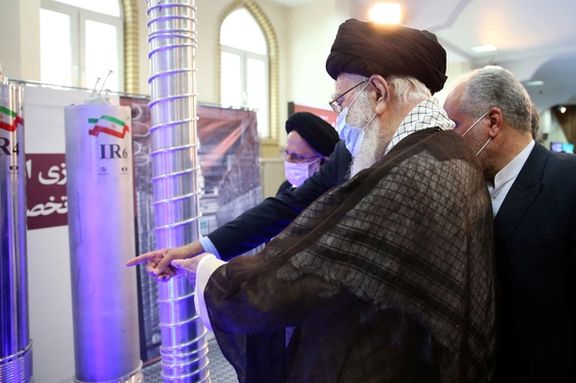US Indicts Japanese Yakuza Leader Over Selling Nuclear Materials To Iran

The United States has indicted a Japanese leader of the Yakuza transnational organized crime syndicate over his attempts to traffic nuclear materials to Iran.

The United States has indicted a Japanese leader of the Yakuza transnational organized crime syndicate over his attempts to traffic nuclear materials to Iran.
Takeshi Ebisawa is accused of conspiring to transfer uranium and weapons-grade plutonium from Myanmar to Iran for use in Iran's nuclear program, the US Justice Department reported on Wednesday.
According to the report, Ebisawa approached an undercover agent working for the US Drug Enforcement Administration (DEA) in early 2020 in Thailand, informing him that he had a large quantity of uranium and plutonium and asked him to find a customer for the materials.
The Yakuza leader then sent the DEA undercover agent “a series of photographs depicting rocky substances with Geiger counters measuring radiation, as well as pages of what Ebisawa represented to be lab analyses indicating the presence of thorium and uranium in the depicted substances,” the report added.
Following the DEA’s investigation, the undercover agent told Ebisawa that he could connect him to an associate, who was posing as an Iranian general. The Japanese side then suggested that plutonium would be more “powerful” than uranium for the production of nuclear weapons, offering to supply the material to the “Iranian general.”
The samples provided by Ebisawa were confiscated by Thai authorities and transferred to the US. According to the analysis by a US nuclear forensic laboratory, the samples were proved to include uranium and weapons-grade plutonium.

“It is impossible to overstate the seriousness of the conduct alleged in today’s indictment” against the Japanese Yakuza leader, said Damian Williams, the US Attorney for the Southern District of New York, adding that he conspired to traffic nuclear uranium and platinum fully aware "the material was going to be used in the development of a nuclear weapons program.”
Meanwhile, Matthew G. Olsen, the Assistant Attorney General of the Justice Department’s National Security Division, stressed that such a trade could have had dire consequences if Ebisawa’s plans had succeeded.
“The Justice Department will hold accountable those who traffic in these materials and threaten US national security and international stability,” he warned.
Ebisawa also negotiated with the DEA’s undercover agent in May 2021 for purchasing military-grade weapons, including surface-to-air missiles. The weapons were demanded by the leader of an insurgent group in Myanmar, added the report by the US Justice Department.
“This is an extraordinary example of the depravity of drug traffickers who operate with total disregard for human life,” said DEA Administrator Anne Milgram in reference to the Yakuza leader’s engagement in weapons, narcotics, and nuclear materials transactions.
In recent years, Iran has become more brazen and vocal around its nuclear program, sanctions so far unable to stem the tide of its progress. Earlier this month, Ali-Akbar Salehi, the former head of Iran's nuclear agency, said Iran has everything it needs for a nuclear weapon, claiming, "we have [crossed] all the thresholds of nuclear science and technology".
This is not the first time that Iranian officials have claimed to have the ability to build a nuclear bomb. In July 2022, Kamal Kharrazi, the head of the Strategic Council for Foreign Relations of the Islamic Republic and a close advisor to Supreme Leader Ali Khamenei, said in an interview with Al Jazeera that Tehran had the technical capabilities to build a nuclear bomb but does not intend to do so.
"We have increased the level of uranium enrichment from 20 percent to 60 percent in just a few days, and it can easily be enriched to 90 percent," Kharrazi said, implying that Iran is very close to making nuclear weapons.
The head of the UN's nuclear watchdog, Rafael Grossi, announced on Monday that Iran continues to enrich uranium well beyond the needs for commercial nuclear use, further adding that the regime is still enriching at an elevated rate of around 7 kg of uranium per month to 60% purity.
Enrichment to 60% brings uranium close to weapons grade, and is not necessary for commercial use in nuclear power production. Iran denies seeking nuclear weapons but no other state has enriched to that level without producing them.